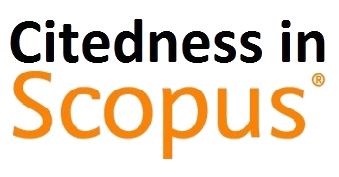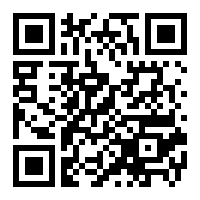Software Testing on The Learning of Islamic Education Media Based on Information Communication Technology Using Blackbox Testing
(1) Department of Islamic Education, Faculty of Tarbiyah and Teaching Training, Universitas Islam Negeri (UIN) Maulana Malik Ibrahim, Malang, Indonesia
(2) Department of Informatics, Faculty of Science and Technology, Universitas Islam Negeri (UIN) Maulana Malik Ibrahim, Malang, Indonesia
(*) Corresponding Author
Abstract
Learning Media is a set of tools that can be helpful and complementary to teachers or educators to achieve a good and righteous learning process with the learners. The development of the learning media based on Information Communication Technology is excellent in the technological era and the millennial period because it can motivate students to learn. Learning materials can be through images, video, text, and other media. The following research is conducting software testing on Islamic religious education learning media using the BlackBox testing approach. The purpose of the study is the implementation of BlackBox testing in media learning Islamic education software. The results obtained showed pretty good results with software testing accuracy of 90%. This research suggests that BlackBox testing is capable of measuring software quality.
Full Text:
PDFReferences
S. H. Anwariningsih and S. Ernawati, “Development of Interactive Media for ICT Learning at Elementary School Based on Student Self Learning,” J. Educ. Learn., vol. 7, no. 2, p. 121, 2013.
S. Sutiah and S. Supriyono, “Fuzzy topsis optimization on expert systems for core competency detection and Islamic religious education student learning achievement at Perguruan Tinggi Keagamaan Islam Negeri (PTKIN),” IOP Conf. Ser. Mater. Sci. Eng., vol. 732, no. 1, 2020.
R. Lerga, S. Candrlic, and M. H. Dlab, “The use of ICT in the English language classroom,” 2017 40th Int. Conv. Inf. Commun. Technol. Electron. Microelectron. MIPRO 2017 - Proc., pp. 836–841, 2017.
J. Ha, “A Study on the Development and Effectiveness of a Teaching-Learning Model Based on Flipped Learning and PBL,” J. Probl. Learn., vol. 5, no. 1, pp. 45–54, 2018.
Sutiah and Supriyono, “Improvement of e-learning based on hybrid learning methods at the university in the era of industrial revolution 4.0,” Int. J. Adv. Sci. Technol., vol. 29, no. 6 Special Issue, pp. 2137–2142, 2020.
K. G. Bakieva and S. K. Muradkasimova, “Enhancing ICT Technologies in Teaching, Learning and Assessment of foreign languages in Uzbekistan.,” Int. Conf. Inf. Sci. Commun. Technol. Appl. Trends Oppor. ICISCT 2019, pp. 1–3, 2019.
J. C. Cronje, “Designing questions for research design and design research in e-learning,” Electron. J. e-Learning, vol. 18, no. 1, pp. 13–24, 2020.
A. P. Estrada-Vargas, E. López-Mellado, and J. J. Lesage, “A Black-Box Identification Method for Automated Discrete-Event Systems,” IEEE Trans. Autom. Sci. Eng., vol. 14, no. 3, pp. 1321–1336, 2017.
M. S. Mustaqbal, R. F. Firdaus, and H. Rahmadi, “PENGUJIAN APLIKASI MENGGUNAKAN BLACK BOX TESTING BOUNDARY VALUE ANALYSIS (Studi Kasus : Aplikasi Prediksi Kelulusan SNMPTN),” vol. I, no. 3, pp. 31–36, 2015.
S. Supriyono and F. F. Maharani, “Analisis Kebutuhan Sistem Informasi Geografis Lahan Pertanian Sayuran dan Buah-buahan di Kota Batu,” Matics, vol. 12, no. 1, p. 44, 2020.
DOI: https://doi.org/10.30645/ijistech.v3i2.57
Refbacks
- There are currently no refbacks.
Jumlah Kunjungan:
Published Papers Indexed/Abstracted By:












